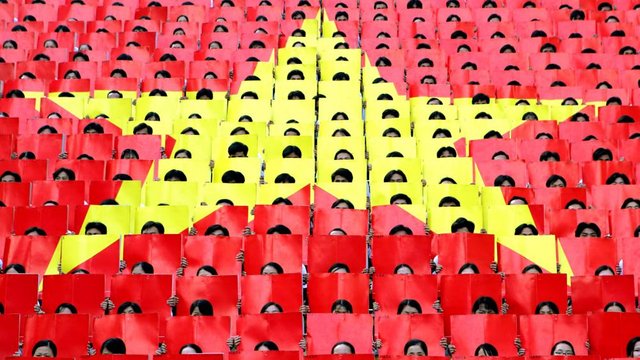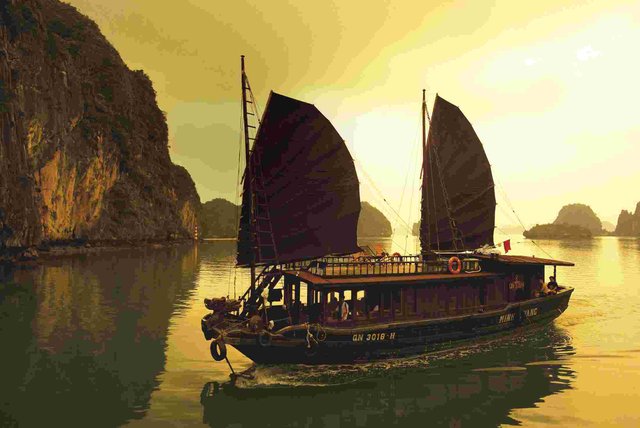Vietnam History


Vietnam's recorded history stretches back to the mid-to-late 3rd century BCE, when Âu Lạc and Nanyue (Nam Việt in Vietnamese) were established (Nanyue conquered Âu Lạc in 179 BCE).[1] Pre-historic Vietnam was home to some of the world's earliest civilizations and societies—making them one of the world's first people who practiced agriculture.[2][3][better source needed] The Red River valley formed a natural geographic and economic unit, bounded to the north and west by mountains and jungles, to the east by the sea and to the south by the Red River Delta. The need to have a single authority to prevent floods of the Red River, to cooperate in constructing hydraulic systems, trade exchange, and to fight invaders, led to the creation of the first Vietnamese states approximately 2879 BC.[4][5][6] Another truly influential part of history in Vietnam occurred during the late Bronze Age, when the Đông Sơn culture dramatically advanced the civilization. Vietnam's peculiar geography made it a difficult country to attack, which is why Vietnam under the Hùng kings was for so long an independent and self-contained state.Once Vietnam did succumb to foreign rule, however, it proved unable to escape from it, and for 1,100 years, Vietnam had been successively governed by a series of Chinese dynasties: the Han, Eastern Wu, Jin, Liu Song, Southern Qi, Liang, Sui, Tang, and Southern Han; leading to the loss of native cultural heritage, language, and much of national identity. At certain periods during these 1,100 years, Vietnam was independently governed under the Triệus, Trưng Sisters, Early Lýs, Khúcs and Dương Đình Nghệ—although their triumphs and reigns were temporary.During the Chinese domination of North Vietnam, several civilizations flourished in what is today central and south Vietnam, particularly the Funanese and Cham. The founders and rulers of these governments, however, were not native to Vietnam. From the 10th century onwards, the Vietnamese, emerging in their heartland of the Red River Delta, began to conquer these civilizations.When Ngô Quyền (King of Vietnam, 939–944) restored sovereign power in the country, the next millennium was advanced by the accomplishments of successive dynasties: Ngôs, Đinhs, Early Lês, Lýs, Trầns, Hồs, Later Trầns, Later Lês, Mạcs, Trịnhs, Nguyễns, Tây Sơns and again Nguyễns. At various points during the imperial dynasties, Vietnam was ravaged and divided by civil wars and witnessed interventions by the Songs, Mongol Yuans, Chams, Mings, Dutch, Manchus, French.The Ming Empire conquered the Red River valley for a while before native Vietnamese regained control and the French Empirereduced Vietnam to a French dependency for nearly a century, followed by an occupation by the Japanese Empire. Political upheaval and Communist insurrection put an end to the monarchy after World War II, and the country was proclaimed a republic.
Hi! I am a robot. I just upvoted you! I found similar content that readers might be interested in:
https://en.wikipedia.org/wiki/History_of_Vietnam